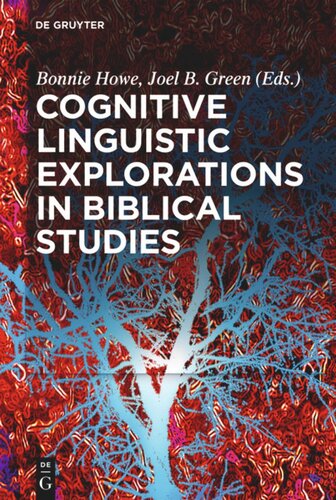

Most ebook files are in PDF format, so you can easily read them using various software such as Foxit Reader or directly on the Google Chrome browser.
Some ebook files are released by publishers in other formats such as .awz, .mobi, .epub, .fb2, etc. You may need to install specific software to read these formats on mobile/PC, such as Calibre.
Please read the tutorial at this link: https://ebookbell.com/faq
We offer FREE conversion to the popular formats you request; however, this may take some time. Therefore, right after payment, please email us, and we will try to provide the service as quickly as possible.
For some exceptional file formats or broken links (if any), please refrain from opening any disputes. Instead, email us first, and we will try to assist within a maximum of 6 hours.
EbookBell Team

4.4
52 reviewsWriting, reading, and interpretation are acts of human minds, requiring complex cognition at every point. A relatively new field of studies, cognitive linguistics, focuses on how language and cognition are interconnected: Linguistic structures both shape cognitive patterns and are shaped by them. The Cognitive Linguistics in Biblical Interpretation section of the Society of Biblical Literature gathers scholars interested in applying cognitive linguistics to biblical studies, focusing on how language makes meaning, how texts evoke authority, and how contemporary readers interact with ancient texts. This collection of essays represents first fruits from the first six years (2006–2012) of that effort, drawing on cognitive metaphor study, mental spaces and conceptual blending, narrative theory, and cognitive grammar. Contributors include Eve Sweetser, Ellen van Wolde, Hugo Lundhaug and Jesper T. Nielsen.